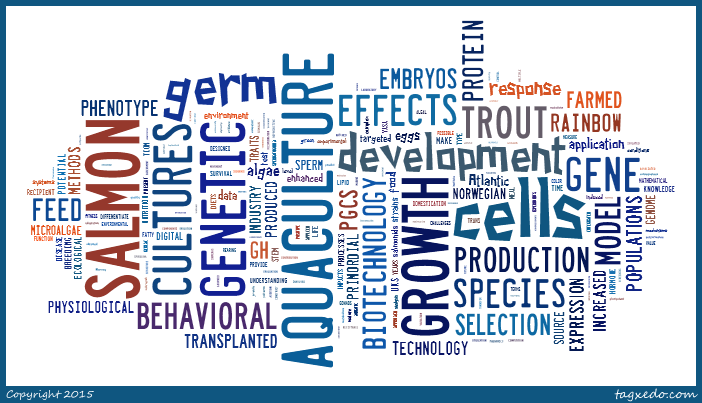NTNU Aquaculture Biotechnology
- NTNU Analysis, Design and Control of Microbial Systems
- NTNU Aquaculture Biotechnology
- NTNU Bioreactor Design and Operation
- NTNU Biopolymer Engineering
- NTNU Genome Editing
- NTNU Human Physiome
- NTNU Morphogenetic Engineering
- NTNU Phenomics Technology
- NTNU Tissue Engineering
- NTNU Synthetic Biology Engineering
- NTNU Therapeutic Targeting
- NTNU Responsible Research and Innovation
Finished project
(R) NTNU Aquaculture Biotechnology Blurb
NTNU Aquaculture Biotechnology
Maintaining a profitable and expansive aquaculture industry leaving minimal human footprints is a pressing issue.
Research activity
Aquaculture biotechnology is the set of bio-based technologies needed for industrial farming of aquatic organisms including fish, molluscs, crustaceans and aquatic plants. A major aim for this R&D stream at NTNU is to contribute to the development of technology and methodology that ensure a robust, profitable and sustainable aquaculture where the farming operations as well as the production of feedstuff leave minimal human footprints. It is particularly focused on salmonid aquaculture and the development of new aquaculture species like lobster and species of seaweeds.

This R&D stream draws upon the concerted efforts of the majority of the other NTNU Biotechnology R&D streams. A major underlying rationale for our work is that the Norwegian salmon aquaculture is foreseen to expand strongly in the decades to come, and that other cultured organisms will become more important as well. This scenario calls for new thinking and an active approach to generate the fundamental biological knowledge that can support a science based development of salmon-related biotechnology. To this end we aim to to generate new lipid and protein resources through novel ways for harvesting at lower throphic levels in the marine food chain and by providing new knowledge allowing much more extensive production of these resources by use of sustainable industrial biotechnology. Tightly linked to the production of new sustainable feed stuff for salmon, is the need for establishing a much deeper quantitative systems understanding of salmon physiology and its dependence on the environment. Together with the Norwegian University of Life Sciences we are in the process of developing the Digital Salmon concept, which draws heavily on the global efforts to create the infrastructure and knowledge base needed for embedding mathematized representations of human physiology into clinical practice.
